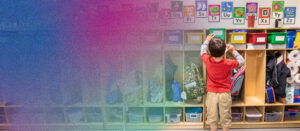When it comes to early education options for your child, two popular choices often come to mind: Montessori school and daycare.
Both options play a crucial role in a child’s development, but they differ significantly in their approaches and philosophies. Understanding the distinctions between Montessori schools and daycare centers is essential for parents seeking the best educational environment for their children.
Let’s explore the key differences between Montessori schools and daycare and help you make an informed decision.
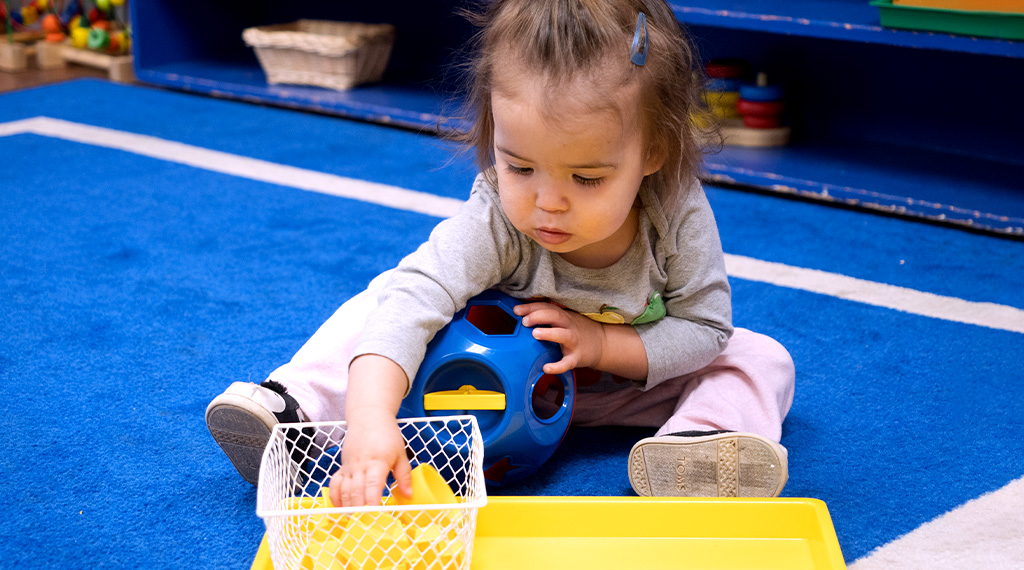
1. Educational Philosophy
Montessori schools follow the educational philosophy developed by Dr. Maria Montessori, emphasizing a child-centered approach to learning. The focus is on fostering independence, self-directed learning, and the development of social and cognitive skills. In contrast, daycare centers typically provide a nurturing environment where children engage in play, socialize, and receive basic supervision and care. While both prioritize a child’s well-being, Montessori schools place a stronger emphasis on structured learning experiences.
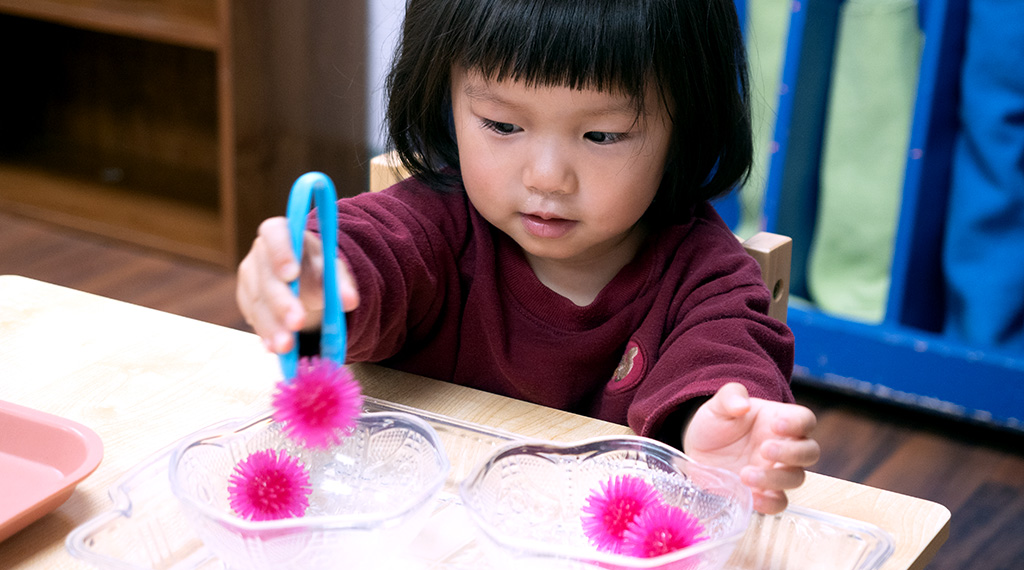
2. Learning Environment
Montessori schools offer carefully prepared learning environments that encourage children to explore and engage with materials at their own pace. Classrooms are usually equipped with specialized educational materials, allowing children to develop fine motor skills, logical thinking, and problem-solving abilities. Daycares, on the other hand, often provide open play areas, toys, and basic learning activities without the same level of structured educational materials and resources.
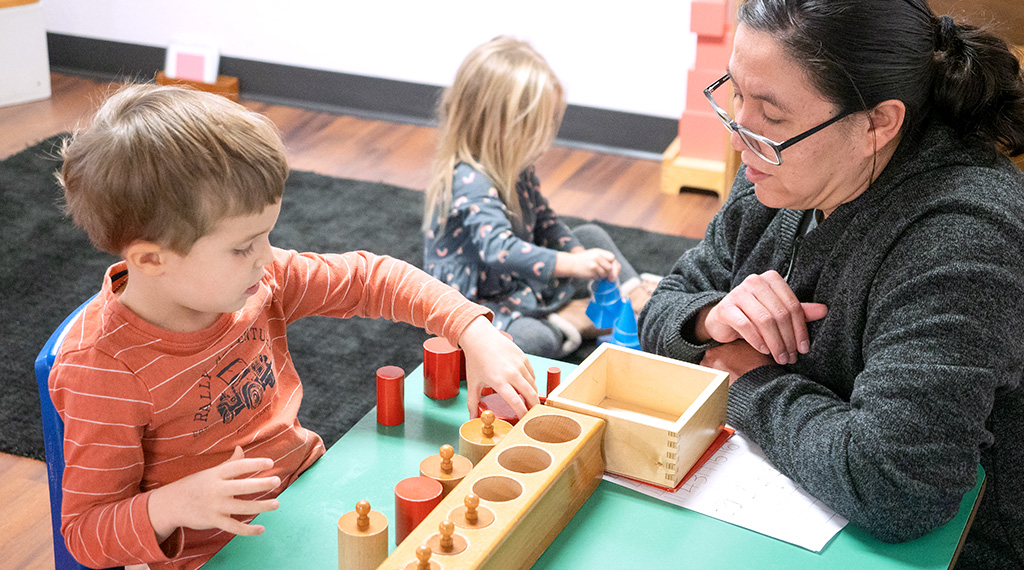
3. Teacher-Student Interaction
Montessori schools employ trained Montessori teachers who act as guides and facilitators in the learning process. These educators observe and guide students individually, fostering a collaborative and supportive environment. In daycare centers, caregivers focus more on supervising and providing for the child’s daily needs, with less emphasis on structured teaching or individualized attention.
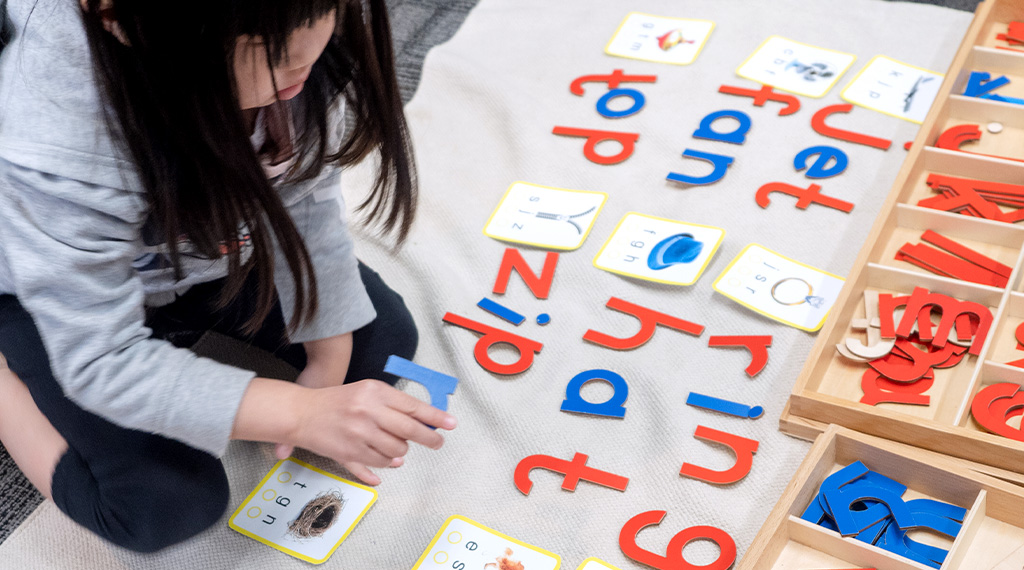
4. Curriculum
Montessori schools follow a curriculum designed to stimulate a child’s natural curiosity and promote self-discovery. The curriculum is often divided into specific areas of learning, such as practical life skills, sensorial development, language, math, and cultural studies. Daycare centers typically offer a less structured curriculum, focusing on basic socialization skills, physical activities, and creative play.
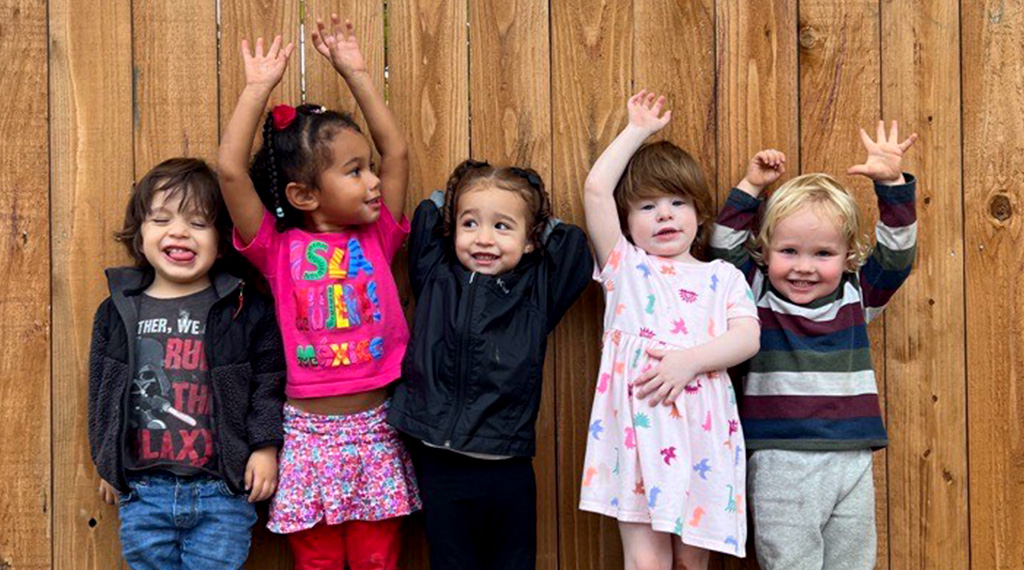
5. Age Range
Montessori schools usually accept children between the ages of 18 months and 6, with some schools extending their programs to higher grade levels. Daycare centers cater to a wider age range, including infants as young as six weeks old, up to school-age children who require after-school care.
Choosing between a Montessori school and a daycare center is a decision that requires careful consideration of your child’s needs and your educational preferences. Montessori schools offer a structured, child-centered approach to education, while daycare centers focus more on providing care and supervision. Understanding the differences between these options will help you make an informed decision that aligns with your child’s developmental requirements and your educational goals.
By considering the educational philosophy, learning environment, teacher-student interaction, curriculum, and age range, you can confidently choose between Montessori school and daycare, ensuring the best possible early education for your child.
Remember, every child is unique, and what works best for one child may not work for another. Take the time to visit different schools and centers, speak with teachers and caregivers, and ask questions to determine which option will provide the ideal foundation for your child’s growth and development.
